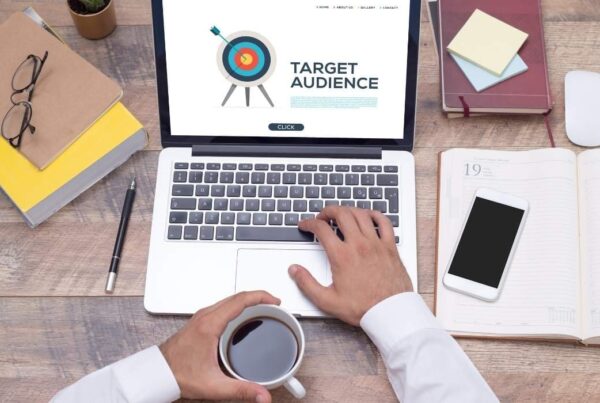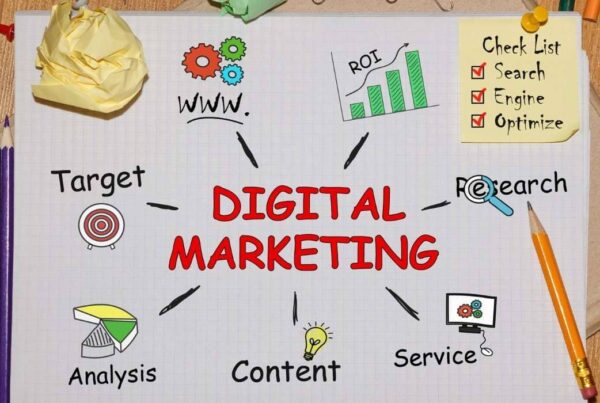In today’s digital age, businesses have a myriad of options when it comes to online marketing.
One popular method is Pay-Per-Click (PPC) advertising. PPC can be a powerful tool for driving targeted traffic to your website and generating leads, but is it the right choice for your business?
This article will explore what PPC advertising is, its benefits and drawbacks, and help you determine whether it aligns with your business goals and marketing strategy.
What is Pay-Per-Click Advertising?
Pay-per-click (PPC) advertising is a form of online marketing in which advertisers pay a fee each time one of their ads is clicked.
You are buying visits to your site rather than earning them organically through SEO or other methods.
PPC ads can appear on search engines like Google and Bing, as well as on social media platforms like Facebook, Instagram, and LinkedIn.
How PPC Advertising Works
PPC advertising typically operates on an auction-based system.
Advertisers bid on keywords that are relevant to their target audience.
When users search for those keywords or engage with content related to them, your ad may appear.
You only pay when someone clicks on your ad, which means you are investing directly in driving traffic to your site.
Critical Components of a PPC Campaign:
- Keyword Research: It is crucial to identify the right keywords. These are the terms and phrases your potential customers are using to search for products or services like yours.
- Ad Creation: Crafting compelling ad copy that encourages users to click through to your website. This includes writing headlines, descriptions and calls to action.
- Landing Pages are the pages users land on after clicking your ad. They should be relevant to the ad’s content and designed to convert visitors into customers.
- Bid Management involves setting the maximum amount you are willing to pay per click and adjusting bids based on performance data.
- Analytics and Optimization: Continuously monitoring your campaign’s performance and making adjustments to improve results. This includes tweaking ad copy, adjusting bids, and refining targeting.
Benefits of PPC Advertising
- Immediate Results: Unlike SEO, which can take months to show results, PPC can generate traffic almost immediately. Once your campaign is live, your ads can start appearing in search results or on social media platforms right away.
- Highly Targeted: PPC allows you to target specific demographics, geographic locations, and interests. This level of targeting ensures that your ads are seen by the people most likely to be interested in your products or services.
- Measurable ROI: PPC platforms provide detailed analytics, allowing you to track the performance of your ads. You can measure metrics such as click-through rates (CTR), conversion rates, and cost per acquisition (CPA), giving you a clear picture of your return on investment (ROI).
- Control Over Budget: With PPC, you have complete control over your budget. You can set daily or monthly limits and adjust your spending based on performance. This flexibility helps you manage costs and maximize the effectiveness of your campaigns.
- Brand Visibility: Even if users don’t click on your ads, they still see your brand’s name and message. This increased visibility can contribute to brand recognition and awareness.
Drawbacks of PPC Advertising
Cost: While PPC can be cost-effective, it can also become expensive, especially in competitive industries.
High competition for popular keywords can drive up the cost per click, impacting your overall budget.
Click Fraud: PPC campaigns can be vulnerable to click fraud, where competitors or malicious users click on your ads with no intention of converting.
This can save your advertising budget and skew your analytics.
Constant Management Required: To ensure your PPC campaigns are successful, they require ongoing management and optimization.
This includes monitoring performance, adjusting bids, and updating ad copy, which can be time-consuming.
Limited Long-Term Benefits: PPC provides immediate results, but its benefits are not sustainable in the long term. Once you stop funding your campaign, your ads will disappear, and you will lose the traffic and leads generated.
Complexity: Setting up and managing a PPC campaign can be complex, especially for those unfamiliar with the process. It may require specialized knowledge or the assistance of a digital marketing professional.
Is PPC Advertising Right for Your Business?
Determining whether PPC advertising is the right choice for your business involves assessing your goals, budget, and overall marketing strategy. Here are some factors to consider:
Business Goals: What are your objectives? PPC can be highly effective for immediate traffic, lead generation, or brand visibility. For long-term organic growth, a combination of SEO and content marketing may be more appropriate.
Budget: Evaluate your budget and consider whether you can sustain ongoing PPC expenses. If you have the resources to invest in a PPC campaign and manage it effectively, it can be a valuable addition to your marketing strategy.
Industry Competition: In highly competitive industries, the cost of PPC can be high—research to understand the competitive landscape and determine if you can afford to compete for relevant keywords.
Target Audience: If you have a well-defined target audience and can create compelling ad copy and landing pages, PPC can be a great way to reach them. Ensure that your ads align with the interests and needs of your target market.
Experience and Resources: Consider whether you have the expertise and resources to manage a PPC campaign effectively. If you are still looking for a digital marketing professional or agency, you may need to invest in hiring a digital marketing professional or agency.
Conclusion
Pay-per-click advertising offers a dynamic way to drive targeted traffic and generate leads quickly.
Its benefits, such as immediate results and precise targeting, make it an attractive option for many businesses.
However, it also comes with challenges like cost and the need for continuous management.
To determine if PPC is the right choice for your business, consider your goals, budget, and the competitive landscape.
If you’re ready to explore PPC advertising and want expert guidance to maximize your results, our team at Top Line Media Group is here to help.
We specialize in creating and managing effective PPC campaigns tailored to your business needs.
Contact us today at Topline Media Group to discuss how PPC advertising can fit into your marketing strategy and drive your business forward.
Let’s work together to achieve your goals and enhance your online presence!
FAQs
What is Pay-Per-Click (PPC) Advertising?
PPC advertising is a model of online marketing where businesses pay a fee each time one of their ads is clicked. Essentially, you are buying visits to your site rather than earning them through organic methods like SEO. PPC ads can appear on search engines (e.g., Google, Bing) and social media platforms (e.g., Facebook, Instagram, LinkedIn).
How does PPC Advertising work?
PPC operates on an auction-based system where advertisers bid on keywords relevant to their target audience. When users search for these keywords or engage with related content, your ad may appear. You only pay when someone clicks on your ad, investing directly in driving traffic to your site.
What are the critical components of a PPC campaign?
- Keyword Research: Identifying terms and phrases potential customers use to search for your products or services.
- Ad Creation: Crafting compelling ad copy, including headlines, descriptions, and calls to action.
- Landing Pages: Designing pages users land on after clicking your ad to ensure relevance and conversion.
- Bid Management involves setting and adjusting the maximum amount you’re willing to pay per click based on performance data.
- Analytics and Optimization: Continuously monitoring performance and making adjustments to improve results.
What are the benefits of PPC Advertising?
- Immediate Results: Generate traffic almost instantly once your campaign is live.
- Highly Targeted: Reach specific demographics, geographic locations, and interests.
- Measurable ROI: Track metrics like click-through rates (CTR), conversion rates, and cost per acquisition (CPA) for clear ROI insights.
- Control Over Budget: Set daily or monthly spending limits and adjust based on performance.
- Brand Visibility: Increase brand recognition even if users don’t click on your ads.
What are the drawbacks of PPC Advertising?
- Cost: This can become expensive, especially in competitive industries where keyword costs are high.
- Click Fraud: Risk of competitors or malicious users clicking on your ads without the intention of converting.
- Constant Management Required: Ongoing monitoring, bid adjustments, and ad updates are needed.
- Limited Long-Term Benefits: Ads disappear once funding stops, leading to a loss of traffic and leads.
- Complexity: Setting up and managing campaigns can be complex, often requiring specialized knowledge.
How do I determine if PPC Advertising is right for my business?
- Business Goals: Assess whether your goals are immediate traffic, lead generation, or brand visibility. PPC is adequate for these objectives, while SEO and content marketing might be better for long-term growth.
- Budget: Ensure you have the resources to sustain ongoing PPC expenses and manage the campaign effectively.
- Industry Competition: Research the competitiveness of your industry to determine if you can afford to bid on relevant keywords.
- Target Audience: Ensure you have a well-defined audience and can create compelling ad copy and landing pages.
- Experience and Resources: Consider whether you have the expertise and resources to manage a PPC campaign or need professional assistance.
What should I consider when setting up a PPC campaign?
- Keyword Selection: Choose relevant and high-performing keywords.
- Ad Copy: Write engaging and clear ad text that drives clicks.
- Landing Page Quality: Ensure the landing page aligns with the ad’s message and is designed for conversions.
- Bid Strategy: Set appropriate bids based on your budget and competition.
- Ongoing Optimization: Regularly review and refine your campaign to improve performance.




